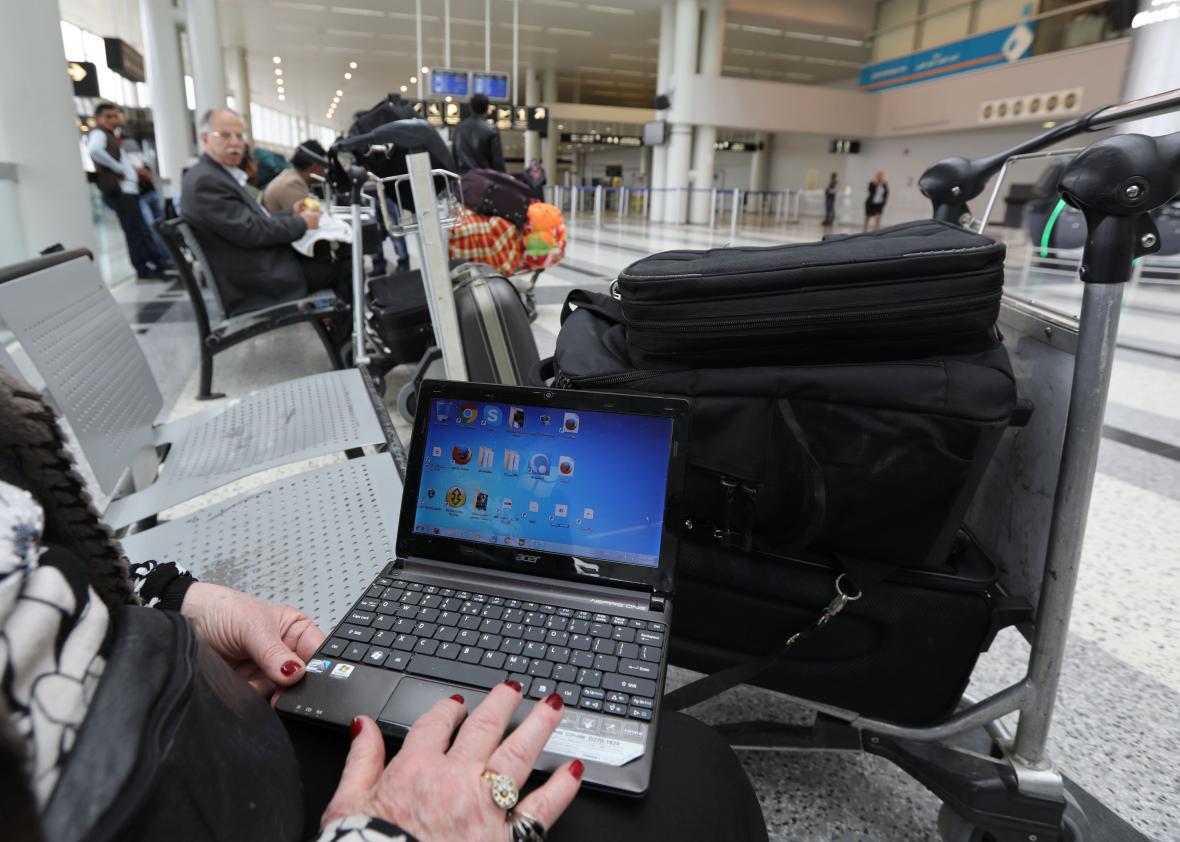The Trump administration is reportedly likely to expand its ban on laptops in the cabins of commercial aircraft to flights from Europe. According to the Daily Beast, the new policy will apply to all flights from Europe to the United States and be announced on Thursday.
The move is an expansion of a ban on flights from 10 Middle Eastern and North African airports announced in March. That policy also applied to tablets, e-readers, game systems, and any other device larger than a smartphone. It’s not clear if the new rule will apply to those devices as well.
The policy in March was reportedly adopted in response to intelligence about a terrorist plot to hide explosives in a laptop on a flight to the United States. The British government followed up with its own ban, aimed at a slightly different list of airports. According to CBS, the policy had been under discussion since an attack on a Somali airliner in 2016, though one would hope security standards are slightly above Mogadishu levels at European airports.
The original device ban—coming shortly after the Trump administration’s Muslim travel ban—has been highly controversial: Several Middle Eastern countries have challenged it at the International Civil Aviation Organization, a U.N. agency. The new one is likely to be even more so. While the March ban didn’t impact any U.S. airlines, which don’t have direct routes from the U.S. to the countries involved, flights from Europe are extremely important for U.S. carriers like Delta, American, and United.
Expanding the policy to Europe does remove one objection to the original ban—that it functioned as a de facto act of protectionism for U.S. carriers that had been facing competition from state-subsidized Middle Eastern airlines. But it still warrants some scrutiny.
For one thing, as the Daily Beast points out, U.S. carrier still don’t have a good answer for the fact that the lithium ion batteries in laptops catching fire in the cargo holds of planes probably pose an equal if not greater security threat than terrorist bombs. There were 33 cases of electronic devices causing fire emergencies on flights in 2016, according to the Federal Aviation Administration, and if those fires had been in cargo holds rather than overhead bins, where they were quickly put out, the results could have been disastrous.
The Department of Homeland Security also needs to address the concerns of passengers worried about the safety of their personal data while their laptops are out of their hands, as well as the potential economic impact on tourism and business travel to the U.S., already projected by industry analysts to fall during the Trump years.
In situations like these, we’re essentially asked to take the government’s word for it that the threat is serious enough to justify the annoyance and inconvenience. While many of us are not exactly inclined to give this administration the benefit of the doubt, the evidence for the Mideast laptop ban was sufficient for congressional Democrats and the British government to support it. But at the very least we should expect authorities to weigh the potential economic impact of a policy like this against security concerns. And given that new airline restrictions tend not to be repealed once they’re introduced, DHS and the White House should at least be pressured to provide answers about what—if anything—would convince them it’s safe enough to bring our laptops back on the plane.
